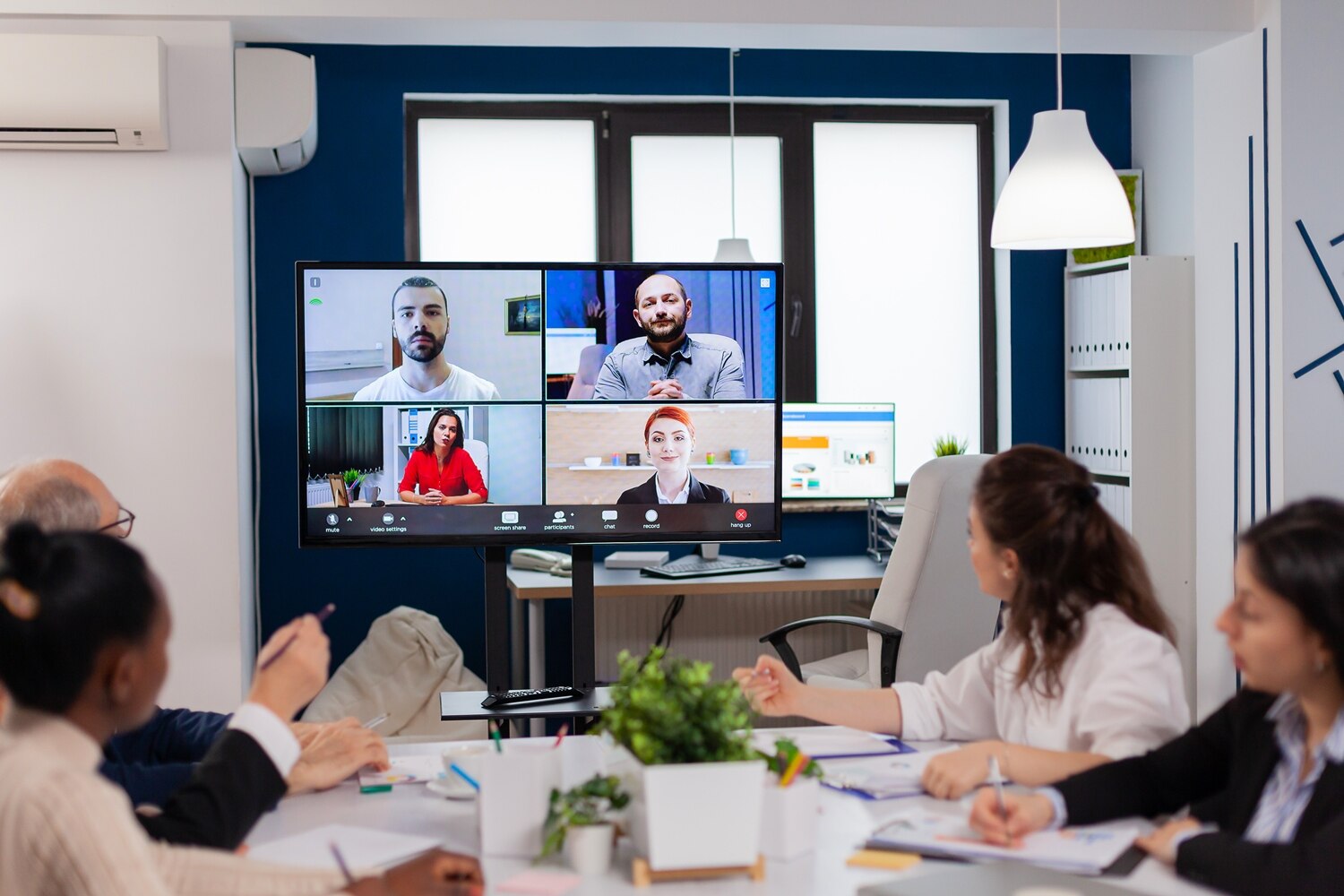We’ve all engaged in conflict. Whether it be personal or professional it seems to be an inescapable part of life. Conflict is exhausting. It drains you of emotional bandwidth, takes up your time and energy. It robs you of focus and at times even of sleep. A limited number of people seem to be able to navigate conflict effectively and resolve issues quickly. However, the majority of people struggle with resolving conflict and end up engaging in poorly prepared heated discussions that escalate unnecessarily. Or they avoid conflict all together. Neither of these approaches lead to ideal outcomes.
Meet Jake, Jake works as a senior project manager at a large construction company. He recent had a very heated argument with one of his colleagues. Since their argument he’s been avoiding this colleague for weeks. Dodging calls, texts and calendar invites. It’s been quite easy because working remotely has meant that he doesn’t share the same office space with this person. What had occurred between Jake and his colleague in a recent meeting was more than a disagreement. At the time he was angry at what had been said, it was hurtful and wrong. Despite his colleagues’ best efforts, Jake has been avoiding any semblance of a resolution. If they were face to face, there would be no hiding his annoyance but these days Jake is connecting online, so at the first sign of this person, he can turn his camera off and recede into the ether, bitter and avoidant.
In many cases it’s easy to avoid conflict online. Technology allows us to hide our faces and become almost invisible if we choose. We can exit a meeting without leaving our seats, we can also tune in and mentally check out. It’s easy to avoid virtually resolving conflict, this does however come at a cost.
- Conflict if left unresolved tends to fester and worsen as time goes on. Particularly if the conflict is personal. It can do irreparable damage to a relationship and inevitably impact individual and team productivity. In essence, conflict costs time, money, energy and effort.
- It’s not uncommon to have individuals and teams bury their heads in the sand when it comes to conflict. Perhaps thinking that if enough time passes, the things said and done will just go away. Conflict is always laden with emotion and feeling that unfortunately can’t be wished away with the passing of time. Human beings hold onto emotion. It doesn’t simply go away, and therefore needs to be resolved.
- Resolving conflict virtually is a learned behaviour. We may prefer to wait to discuss tough issues until everyone is in person. Now more than ever, that may not be an option. So, don’t shy away from controversial topics in seeking to resolve conflicts virtually.
Rather than avoid conflict we need to equip ourselves with the right set of skills to enable us to do the following.
Understand what conflict is and what causes it
Before we engage in resolving any conflict, we first need to understand what it is and what causes it. It’s not uncommon to disagree with others. But what separates disagreement from conflict? It’s simple. The answer is emotion. A disagreement becomes conflict when raw emotion is involved. When two people disagree, and emotion is attached it causes conflict. It becomes incredibly useful to identify the two parts of conflict. Firstly, that there is an emotional component and secondly that there is one or more key issues or problems to resolve. Once we’re aware or the two parts, we can tackle these components separately and begin the resolution process. This skill can be learnt both in face to face and through virtual conflict resolution training.
Initiate difficult conversations in a way that creates a safe environment for those involved face to face or online.
The last thing we want to do when we’re trying to resolve conflict is to exacerbate it. In other words, we don’t want to make things worse. Part of doing this means that we need to create a safe environment both face to face and online. Any good face to face and digital conflict resolution training will coach its participants on how to create safety in conversation. Doing this enables the conflict to be resolved more easily. Using third party neutral language ensures we don’t escalate the situation. Whether you’re looking to learn conflict resolution online or face to face, creating safety is a great place to start.
Gain insights into your own response to conflict and how to manage their emotional state
Understanding yourself in the face of conflict and knowing more about your own behaviour when engaged in conflict will help you navigate the resolution of conflict more effectively. Some conflict resolution trainings in Australia will rely on detailed diagnostic tools to shed light on how you respond to conflict. Not all conflict resolutions courses online/face to face will delve into this level of detail. If you’re seeking to create behavioural change in how you react to and resolve conflict getting specific information about you is incredibly important. To learn more about the types of diagnostic tools that exist you can enquire further with any conflict resolution training providers.
Respond constructively in the face of strong emotions like anger, frustration or disappointment, or when the other person shuts down face to face and online
How do you respond constructively to strong emotion both face to face and online? It’s not always easy. To respond to high emotion effectively, we need to be prepared. Most conflict resolution courses online and face to face will advocate for preparation. We need to anticipate high emotion and be prepared to deescalate it by using a defined process that acknowledges what the emotion is and where it comes from. This approach differs when online. If the majority of your difficult conversations occur online, it may be beneficial to engage in digital conflict resolution training.
Build confidence to discuss difficult or sensitive issues in a way that creates more constructive working relationships
Most people avoid resolving conflict. Some say it’s too hard, others don’t like to fight. A large reason why people are avoidant of conflict and avoid resolving conflict is because they lack the confidence and processes to do so. It’s incredibly important to recognise that conflict resolution is a skill and that there are plenty of face to face and online courses about conflict resolution. We need to begin to build confidence and aptitude whether through face to face or virtual conflict resolution training. Structure, process and practice build confidence.
Where to practice conflict resolution online?
It’s important to note that before we engage in practicing conflict resolution online, we should have a well-defined process to rely upon. One that is robust and can assist us to improve our ability to resolve conflict in the moment. Once we have found a process, we can then begin practicing online. It might be beneficial and less risky to test out your conflict resolution skill in a pretend scenario. Many conflicts resolution training in Australia will have their participants conduct simulated role plays. These are carefully crafted scenarios, designed for you to resolve. They usually involve 2 or more people.
How to improve each skill through practice online
If you have recently completed a face to face or online conflict resolution skills course, to improve your newly developed skills you need to practice. It’s incredibly important to make time for practice. Without actively allocating time from our day or ensuring you hone and refine skill, it’s hard to improve. Many providers of conflict resolution skills courses in Australia offer coaching both virtually and face to face. Coaching allows for immediate feedback on your progress and provides a safe environment to test out new approaches and strategies.
Receiving coaching for improving conflict resolution skills online is less about measuring the substantive outcomes of your difficult conversations but more about becoming agile and effective at diffusing conflict and resolving the substantive issues at hand. Not all conflict resolution skills trainings online will put emphasis on long term growth and improvement compared to short term gains. It’s important to choose an online conflict resolution skills course that doesn’t focus solely on result.
Where can you learn conflict resolution management online?
There are plenty of providers that offer face to face and virtual conflict resolution training. However not all conflict resolution trainings in Australia are the same. Ensure you partner with a provide that has globally recognised frameworks and a track record of successfully embedding skills. There are some brilliant conflict resolutions trainings in Melbourne. These are accessible virtually so no matter where you’re located you can learn conflict resolution skills online.
How virtual conflict resolution workshop works and can help you
A virtual conflict resolution workshops usually begins with exploring a recent or upcoming conflict. All good virtual conflict resolution course online should have participants understand a little about their predispositions when engaged in conflict. From there a central process or framework is shared and applied to a personal example or a cleverly crafted exercise or case study.
As mentioned above it becomes important to develop and practice skills in the session. All of the best conflict resolutions trainings in Australia ensure there is a fully qualified and engaging facilitator delivering their workshop. Often the facilitator will be an expert in the field of conflict resolution and will be able to provide specialist coaching to each of the participants about their approach to conflict resolution and how to improve.
One of the central benefits of virtual conflict resolution skills training is that you can connect with an expert from anywhere in the world. More than this you can receive specific 1:1 coaching on how to improve your difficult conversations.
Virtual conflict resolution skills training can help you elevate the quality of your difficult conversations, build relationships and understand how to get the most out of your next conversation.
How virtual conflict resolution training can help you
Virtual conflict resolution training works similarly to face to face training in that you learn and develop a skill. It does however differ in many ways and provides a multitude of advantages. Virtual training allows you to connect with participants from anywhere in the world. Practice your skills in private virtual rooms and receive direct coaching and feedback from the comfort of your office or home.
Virtual training takes place on an online platform like Zoom, Microsoft Teams or WebEx Meetings. A trained and experienced facilitator will guide you through any learnings and provide you with the tools and skills to develop and hone a skill.
The specific learning and subject matter can be laid out in an engaging and creative manner online, which helps participants to have higher retention of the ideas and content. Small videos, graphics and activities help to explain complex ideas in a very interactive manner, ensuring that every participant is able to thoroughly comprehend the subject matter.
The tools available for virtual learning – such as breakout rooms, digital whiteboards and polls enable participants to engage and contribute. Sessions are also able to be recorded. Virtual training offers flexibility.
Virtual training can help you identify your growth edges enable you to get the focused attention you need and succeed.
Conclusion
Whether we like it or not conflict is inevitable. That being said it’s important to upskill ourselves to ensure that we don’t get bogged down in conflict. We don’t want to be robbed of time energy and emotion. We need skills to resolve conflict. A process to manage conflict and ourselves. Conflict resolution starts with you. Effectively managing conflict makes it easier to work through your personal and professional life. The question now becomes will you step up and equip yourself with the right skills to make your personal and professional relationships flourish?
















